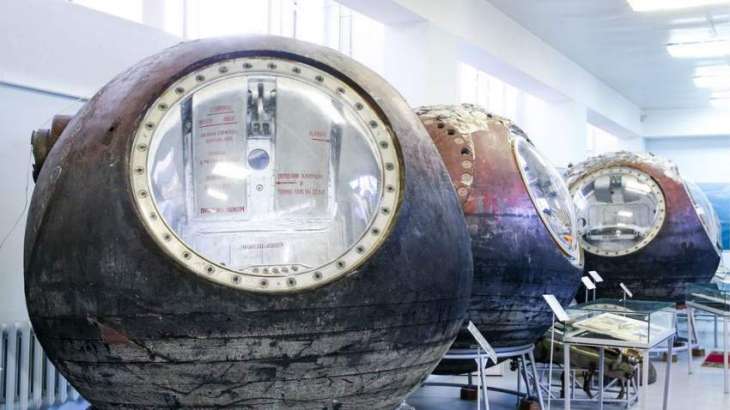In this digest, we will tell you about the number of Russians hoping to find a job in early 2023, the attitude of Russians to the newly emerging variants of the coronavirus, and the first Russian university to obtain the right to assess the potential of inventions in the space industry
MOSCOW (Pakistan Point News / Sputnik - 16th January, 2023) In this digest, we will tell you about the number of Russians hoping to find a job in early 2023, the attitude of Russians to the newly emerging variants of the coronavirus, and the first Russian university to obtain the right to assess the potential of inventions in the space industry.
About one and a half million Russians have decided to start 2023 by looking for a new job, a fresh study by the HeadHunter employment search service showed on Monday.
A total of 49% of respondents indicated on their CVs that they were actively looking for a job. Another third (31%) said they are ready to consider offers, while 2% noted that they had already been offered a job.
Applicants from Moscow, St. Petersburg, and the Moscow region were the most active at the beginning of the year 28%, 11%, and 6%, respectively. They are followed by job seekers from the Krasnodar region (4%) and the Sverdlovsk region (3%).
Most often, Russians are looking for vocations as sales managers (9%), administrators (6%), drivers, salespeople, accountants and project managers (4% each), as well as secretaries, partner managers, programmers (3 each).
Among those who decided to start the year by looking for a new job, there are slightly fewer men than women 49% against 51%. In terms of age, the groups most prone to change jobs in the first weeks of January were applicants aged 26-35 years old (32%) and 36-45 years old (27%).
Russians are getting less scared by every new emerging variant of the coronavirus, as only one in ten is now afraid of the Omicron subvariant XBB.1.5 dubbed Kraken, according to a fresh poll by the SuperJob employment search service, which interviewed 1,600 adults.
A year ago, 12% of Russians had concerns about the Omicron variant, while now the figure has dropped to 10%, according to the findings.
Respondents who were vaccinated against the coronavirus more than six months ago are most afraid of contracting the Kraken subvariant(13%). Among those vaccinated less than six months ago, there are 9% of those concerned. Anti-vaxxers are the most fearless, as only 8% of them are afraid of the latest strain.
Last week, Russian consumer rights watchdog Rospotrebnadzor said that it had detected the first case of the more contagious subvariant of the COVID-19 Omicron strain, Kraken, but said that no new restrictions were going to be introduced in response.
FIRST TO ASSES SPACE INNOVATIONS
Samara National Research University announced that it had become the first university in Russia to obtain the right to evaluate the potential of inventions in the space industry.
"Samara National Research University named after academician S.P. Korolev has become the first university in Russia to obtain the official right to conduct a preliminary examination of potential inventions and utility models in the field of space technology � from the creation of satellite systems to the development of spacecraft," the university said in a statement.
According to the decision of the Federal Service for Intellectual Property (Rospatent), two universities in the Samara region � the Korolev university and Samara State Medical University � received accreditation from the department, which allows for a preliminary assessment of the patentability of innovations in various fields of activity.
Before that, only three universities in Russia had Rospatent accreditation. The Samara university became the fourth in the list of accredited organizations and the first to receive accreditation from Rospatent for conducting a preliminary patent examination of developments in the field of astronautics.
The university will not be able to issue patents � this remains the sole prerogative of Rospatent � but the activities of accredited universities will help speed up the registration and implementation of innovations in Russia, including in terms of imports, and will improve the quality of patent applications.




